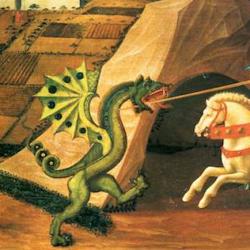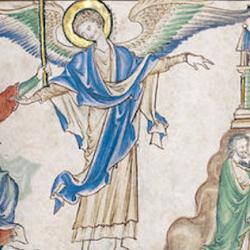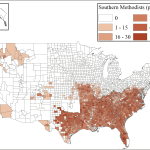The Reformation was highly improbably, writes Andrew Pettegree in his lively, vivid Brand Luther: “that a monk who into his thirtieth year had published nothing, and who shared the conventional education of other churchmen, should somehow reinvent himself as a writer and polemicist of astonishing power.” More, “in an age that valued prolonged and detailed exposition, complexity, and repetition, it was astonishing that Luther should have instinctively discerned the value of brevity. Luther in effect invented a new form of theological writing: short, clear, and direct, speaking not only to his professional peers but to the wider Christian people” 5).
Pettegree returns to the point in his summary of Luther’s early Sermon on Indulgence and Grace: “This was his first serious foray into vernacular writing, yet it can only be described as a work of intuitive genius. Luther replaces the ninety-five propositions of the Latin theses with twenty short paragraphs, each developing a single aspect of the question. None is more than three or four sentences long; the sentences are short and direct. The whole work is a mere fifteen hundred words. It first perfectly into an eight-page pamphlet” (81).
While others were writing pronouncements in 106 theses (Tetzel) or even 406 (von Karlstadt), Luther wrote a sermon. Even for a sermon it was revolutionary: “as any attendee could attest, sermons were usually of interminable length. The sermon was a theatrical event, with repetition, exhortation, and rhetorical virtuosity, an endurance test for preacher and audience alike. . . . Luther, in contrast, had produced a sermon that could be read, or read aloud, in ten minutes, and still engaged the heart of the question” (81).
Tetzel wrote a vernacular rebuttal, and Luther quickly responded with another brief pamphlet that went through nine editions in 1518. Tetzel gave up the vernacular, reverted to Latin; and Luther realized he didn’t have to respond to Tetzel’s Latin works at all (82).














